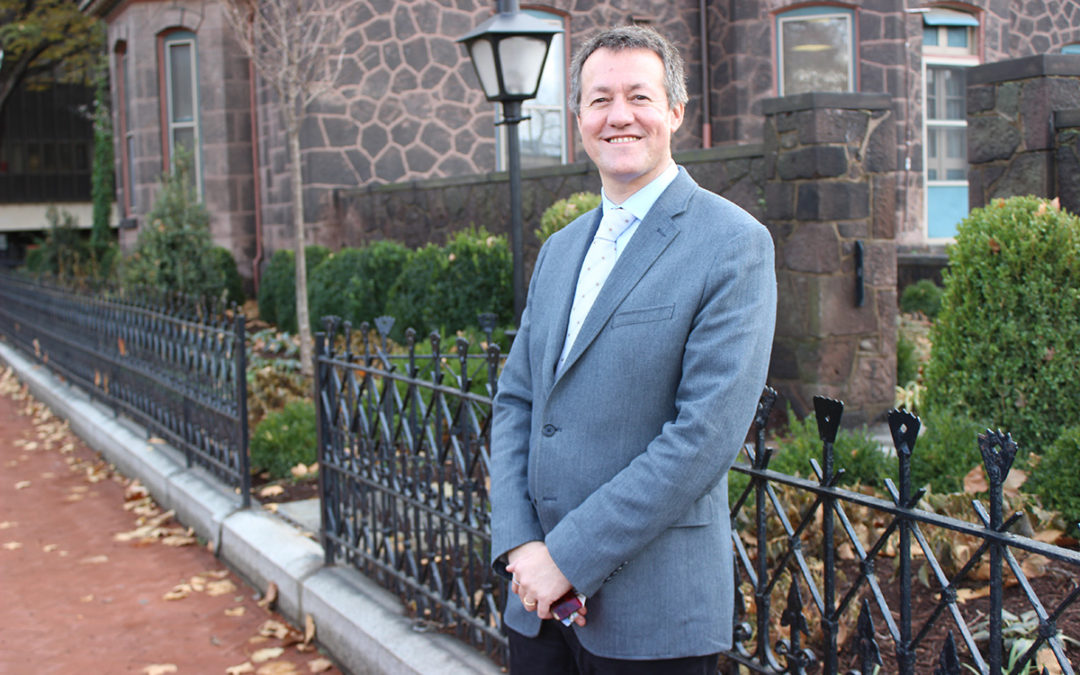Meet Our Faculty: In this Rutgers Global Health Institute content series, we highlight our core faculty members.
Benedetto Piccoli
“When will we use this in real life?” This is a question undoubtedly asked over and over, in many different languages, in high school math classrooms around the world. Among the answers Benedetto Piccoli would provide is that math is essential to tackling some of the biggest global health challenges. Mathematicians apply statistical knowledge and analytical skills to predict epidemic outbreaks, compile data from clinical trials and interpret medical outcomes, and evaluate the efficacy of new drug therapies. As a core faculty member of Rutgers Global Health Institute, Piccoli applies advanced mathematical methods to science, engineering, and health in ways that are making a measurable impact on the lives of many.
Other Rutgers Roles
- Joseph and Loretta Lopez Chair Professor of Mathematics, Department of Mathematical Sciences, Faculty of Arts and Sciences–Camden
- Associate Provost for Research, Rutgers University–Camden
Not an Obvious Pairing
A mathematician may not be an obvious choice when forming partnerships in health-related investigations, but the idea of applying math in ways that impact people’s lives is something that Piccoli, an applied mathematics scholar, finds exciting.
“One of my first collaborations was with the Spallanzani Institute in Rome,” Piccoli recalls. The National Institute for Infectious Diseases “Lazzaro Spallanzani” is one of Italy’s major centers for HIV/AIDS care and research. “The project was on the early detection of highly active antiretroviral therapy, also known as HAART, failure in patients.” Usually, HAART reduces the virus to undetectable levels; however, sometimes therapy fails, and new drug combinations need to be introduced. “Using data compiled from blood tests, mathematical models were deployed to predict—typically within the first weeks of treatment—if the therapy was going to be effective or if there was a high probability of failure. It opened my mind, both in terms of the impact that my research may have as well as the difference in methods used in medical research.”
Formula for Effective Treatment
Piccoli is currently collaborating with the Bill & Melinda Gates Medical Research Institute (Gates MRI), a nonprofit biotech organization under the Bill & Melinda Gates Foundation, to improve tuberculosis treatment regimens.
People with tuberculosis undergo an arduous, six-month course of four different drugs and require continuous medical supervision. It’s not uncommon for patients to stop taking their medications or develop drug resistance. Piccoli’s work with Gates MRI strives to reduce the probability of these kinds of treatment failures by developing a simpler drug regimen.
“We are looking at genetic data, pharmacokinetics, and metabolic networks to optimize the treatment,” Piccoli says. “Each drug has a complex action of up- and down-regulating genes, which in turn affect various metabolic pathways. We use large datasets and mathematical modeling to better understand which drug combinations will be the most effective in the shortest amount of time.”
Multiplier Effect
Global health problems are complex, and solving them means involving perspectives outside of traditional health disciplines. “Gates MRI is really pushing a community of diverse researchers—from modelling, to lab work, to clinical trials—to collaborate effectively toward the common goal of developing new therapies,” says Piccoli. “Working together allows researchers to realize this goal, while always keeping the larger vision—eradicating TB—in mind.”

